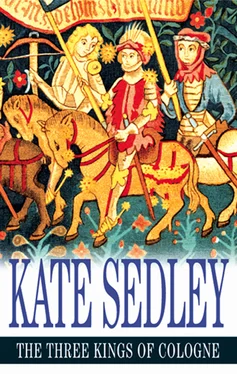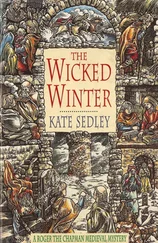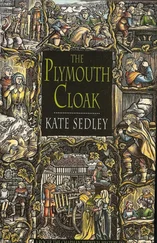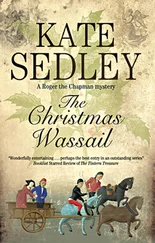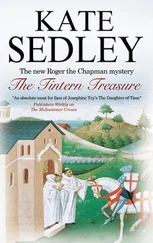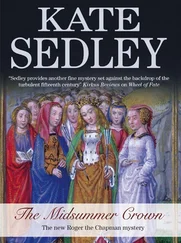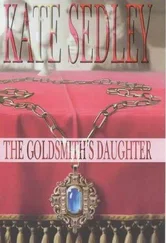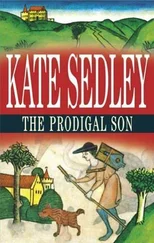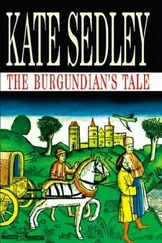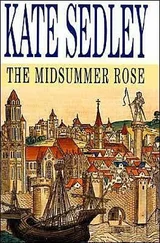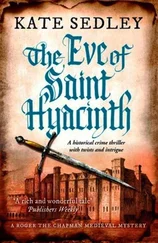Kate Sedley - The Three Kings of Cologne
Здесь есть возможность читать онлайн «Kate Sedley - The Three Kings of Cologne» весь текст электронной книги совершенно бесплатно (целиком полную версию без сокращений). В некоторых случаях можно слушать аудио, скачать через торрент в формате fb2 и присутствует краткое содержание. Жанр: Исторический детектив, на английском языке. Описание произведения, (предисловие) а так же отзывы посетителей доступны на портале библиотеки ЛибКат.
- Название:The Three Kings of Cologne
- Автор:
- Жанр:
- Год:неизвестен
- ISBN:нет данных
- Рейтинг книги:5 / 5. Голосов: 1
-
Избранное:Добавить в избранное
- Отзывы:
-
Ваша оценка:
- 100
- 1
- 2
- 3
- 4
- 5
The Three Kings of Cologne: краткое содержание, описание и аннотация
Предлагаем к чтению аннотацию, описание, краткое содержание или предисловие (зависит от того, что написал сам автор книги «The Three Kings of Cologne»). Если вы не нашли необходимую информацию о книге — напишите в комментариях, мы постараемся отыскать её.
The Three Kings of Cologne — читать онлайн бесплатно полную книгу (весь текст) целиком
Ниже представлен текст книги, разбитый по страницам. Система сохранения места последней прочитанной страницы, позволяет с удобством читать онлайн бесплатно книгу «The Three Kings of Cologne», без необходимости каждый раз заново искать на чём Вы остановились. Поставьте закладку, и сможете в любой момент перейти на страницу, на которой закончили чтение.
Интервал:
Закладка:
Jonathan Linkinhorne repeated impatiently, giving equal emphasis to every word, ‘Do I know you?’
I pulled my wandering thoughts together and plunged into my explanation.
When I had finished, there was a lengthy and unnerving silence while my companion drummed with his fingers on the tabletop, a sign of agitation that was in no way reflected on his face, which remained an expressionless mask. At least, so I thought until I was shocked to see tears gathering in the corners of his eyes, then trickling unchecked down his lined and weathered cheeks.
The silence continued to stretch while I gave us both time to recover our composure. I disliked intruding into anyone’s private grief, and silently deplored John Foster’s desire to uncover the truth of past events. The past was dead: let it lie.
This uncharacteristic state of mind did not last long, however, and I was immediately all ears when Master Linkinhorne suddenly roused himself, blinking rapidly like a man coming out of darkness into light — or like a man reaching a decision after a long period of uncertainty.
‘It’s extremely kind of our new Mayor to interest himself in my affairs,’ he said grudgingly, ‘but I doubt if he — or, rather, you, as his instrument — will be able to find out much after all this time. The year that Isabella disappeared was the year in which King Edward won the battle of Mortimer’s Cross and seized the crown from King Henry … It seems like another life.’
And so it did. My lord of Gloucester and I had both been eight years old — nine at the beginning of that October — and Edward of York, now growing ill and bloated from an excess of food, wine and women, had been regarded as the handsomest man in the whole of Europe; over six feet tall and as dazzling as the sun. His badge, the Sun in Splendour, had then reflected his glory: nowadays it was nothing but an empty mockery of what he had once been.
I said gently, ‘The discovery of your daughter’s body must have been a terrible shock for you, Master Linkinhorne. But surely you must have some desire to know what happened to her? Who murdered her?’ He made no response. I hesitated, then went on, ‘Did … forgive me, but did neither you nor your wife ever consider the possibility that some harm might have befallen Isabella?’
He was silent for a moment or two longer, then slowly shook his head.
‘I daresay you think we should have done,’ he said at last, ‘but I’m ashamed to say that it never so much as crossed our minds.’
‘Can you …? Do you know why not?’
Again there was a protracted pause as though he were struggling to come to terms with something that was almost too painful to contemplate.
‘Isabella,’ he murmured at length, ‘was always threatening to run away from home.’ He drew a long, ragged breath. ‘My wife, Master Chapman, was over forty when our daughter was born. I was five years older. We had given up all hope of having a child, so Isabella was … was like a miracle sent by God. And we knew that we should have no more children. Foolishly, we indulged her every whim, both when she was a little girl and as she grew older. Everything she wanted, she had.’
Except her freedom, I thought. Except her freedom! I could see that Sister Walburga had been in the right of it when she’d said that an old couple’s overwhelming love had stifled an eager, high-spirited girl. And when that girl had become a woman, she had rebelled.
Almost as an echo to my thoughts, Jonathan Linkinhorne went on, ‘Suddenly Amorette, my wife, and I didn’t know her any more. Looking back, of course I can see that even when she was small, riding her pony, Isabella would try her best to get clear of anyone who was accompanying her; my wife, myself or her nurse. And as soon as she had mastered the grey mare we bought her for her fifteenth birthday, there was no holding her back. Each day she was out riding, in all weathers, galloping across the downs in every direction. There was no longer anyone who could keep up with her. She grew defiant, wilful … You think we should have beaten her, no doubt. Locked her in her chamber. People told me to my face that I was too weak with her. That if she had been their daughter …’ He shrugged. ‘Oh, you can guess the sort of thing.’
I could, only too well. I had a daughter of my own and could foresee myself receiving just the same sort of advice when that strong-minded damsel reached maturity.
‘But,’ I prompted, when my companion threatened to lapse into silence once again, ‘Isabella always did come home? She never did run away?’
‘No,’ he agreed sadly. ‘She never did run away. I know that now.’ He made a sudden, visible effort and roused himself from his reverie. ‘Of course I do. But twenty years ago, my wife and I believed differently. We believed that Isabella had finally carried out her threat and run away with one of her suitors.’
A log fell with a crash on to the hearth behind me, sending up a comet’s tail of sparks. One of the old men at the next table hurried forward importantly, seized the tongs and put the crumbling log back on the fire, glancing around as he did so for applause. When none was forthcoming, he huffed his way back to his seat, offended. I felt sorry for him.
‘You say suitors in the plural,’ I said, turning back to face Jonathan Linkinhorne. ‘There was more than one?’
‘So we were told.’
‘Did you never see them?’
His jowl quivered defiantly. ‘No. Isabella always denied their existence when we questioned her concerning them.’
‘In that case, how can you be sure these men ever really existed?’
He gave a faint, fleeting smile and confirmed what Sister Walburga had already told me.
‘Neighbours, well-wishers, friends. People who knew people, who knew people, who knew people … Someone’s mother-in-law’s aunt had seen Isabella riding with a male companion near Westbury village, or on the Gloucester road, or as far away as the track that runs south to Bath. There were also reports of her visiting Bristol on her own, stabling the mare at the Full Moon, near Saint James’s Priory. Sometimes, of course, she accompanied her mother and me to the city, when we went to visit the market or for another reason. And I recall there were several occasions when we lost her. She always turned up again, later, but would never say exactly where she’d been in the meantime.’
‘Is there any chance she could have gone to visit your cousin at the Magdalen nunnery?’
Jonathan Linkinhorne shook his head glumly.
‘Jeanette — Sister Walburga that is — didn’t enter the nunnery as a postulant until just a few weeks before Isabella vanished.’
I thought over what he had told me for a moment or two while he once more lapsed into silence. Then I asked, ‘Why are you so certain that, in all these sightings of your daughter in the company of a man, it was not the same man every time? Why are you so sure that there were three?’
With a visible effort, Jonathan Linkinhorne dragged his eyes back to my face.
‘The descriptions didn’t tally,’ he said, at last raising his beaker and taking a few sips of ale. He licked his lips and wiped his mouth on his sleeve. ‘One account was of a tall, fair man, very handsome. Another described a stocky, sandy-headed fellow, while a third fitted neither of those descriptions.’
‘What was that?’
‘Oh, brown-haired, blue-eyed, nothing remarkable or noteworthy. A man like a hundred others. Although …’ My companion broke off, pressing a hand to his forehead, peering back into the dim recesses of the past and trying to conjure up a memory. ‘Someone said — I think it was of him, and yet I wouldn’t be sure — that he was a jolly fellow, always laughing. Or was that one of the others?’
Читать дальшеИнтервал:
Закладка:
Похожие книги на «The Three Kings of Cologne»
Представляем Вашему вниманию похожие книги на «The Three Kings of Cologne» списком для выбора. Мы отобрали схожую по названию и смыслу литературу в надежде предоставить читателям больше вариантов отыскать новые, интересные, ещё непрочитанные произведения.
Обсуждение, отзывы о книге «The Three Kings of Cologne» и просто собственные мнения читателей. Оставьте ваши комментарии, напишите, что Вы думаете о произведении, его смысле или главных героях. Укажите что конкретно понравилось, а что нет, и почему Вы так считаете.
